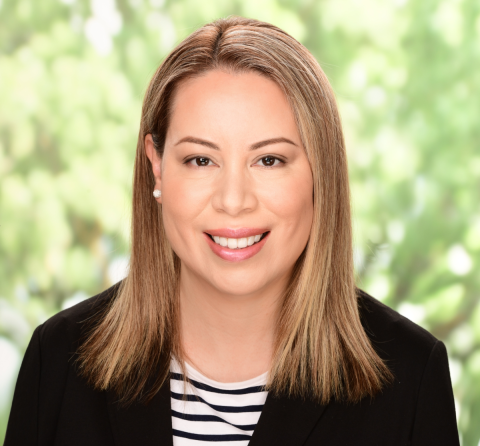Nattlie Smith (Wiradjuri), Evaluation Profession

|
‘I joined the Evaluation Profession as a way of living my key values of curiosity, continuous learning, connections and relationships, and reciprocity or “giving back”.’ |
| Role | Branch Manager, Strategic Insights |
|---|---|
| Agency | National Indigenous Australians Agency |
Joining the APS
Describe your entry into the APS
I joined the APS as Assistant Secretary for Access and Inclusion in Early Childhood Education and Care at the Department of Education, leading national early learning programs promoting access to high quality supports and services for children in regional and remote areas.
I wanted to build on my state government experience and contribute in a bigger way, after working for 20 years in the NSW Government and non-government organisations across health, ageing, disability, child protection, housing, digital inclusion and with Aboriginal communities and organisations.
Your professional career
Describe the meaning and importance of being a ‘professional’ in the APS
Being a ‘professional’ in the APS is bringing your skills, knowledge and experience to help the government fulfil its policy objectives. For me, as an Aboriginal person, this includes my AI or ‘Aboriginal Intelligence’—my culture, identity, connections, relationships, respect for ancestral wisdom, reciprocity or ‘giving back’, and service to others including Elders and community.
Evaluation professionals help ensure public money delivers through good program design—a strong program logic and theory of change, clear objectives, meaningful KPIs, appropriate data collection, well-defined outcomes and evaluation planning including, where appropriate, Indigenous methodologies. This helps ‘evidence-up’ that programs are working and identify adjustments.
How did you become a ‘professional’ in your field?
My interest in evaluation grew as the Senior Manager of Aboriginal Co-design and Evidence for a NSW Government agency, launched as a whole-of-government reform to deliver improved outcomes for vulnerable children, young people and their families. This included a particular focus on Aboriginal children and families who were, and still are, over-represented in the out-of-home care system.
I led the Aboriginal Evidence Building in Partnership Project, partnering with Aboriginal Community-Controlled Organisations and evaluation experts. We used an Aboriginal-led co-design approach to embed and improve outcomes data collection mechanisms and evidence building capabilities, to better demonstrate that their programs worked best for local Aboriginal children, young people, families and communities. This won the Australian Evaluation Society’s Indigenous Excellence Award for enabling Indigenous self-determination and empowerment from the outset.
How do you maintain the required qualifications and standards for being a professional in your field?
I’m a big believer in continuous learning, and would never consider myself fully ‘competent’ in the Aboriginal space. I continue building my knowledge, through spending time with family and community or learning about the beliefs, histories and customs of fellow Indigenous people and their communities.
What do you value most about being a professional in your field?
As an evaluation professional, I can influence and drive change. I have led projects to ‘evidence up’ programs and developed business cases which improve the life outcomes for/with Aboriginal people as well as the early childhood education and care sector.
Which professional experiences or achievements are you most proud of?
My proudest career moment was being recognised as an exemplary Indigenous senior woman leader, winning the Chief Executive Women in partnership with Aurora Education Foundation’s Roberta Sykes Scholarship. I got to study ‘Leading in Artificial Intelligence (AI) ꟷ exploring Technology and Policy’ at Harvard University in Boston and create my own Aboriginal-friendly social housing chatbot assistant. I learned how important it is for us mob to understand AI, and be digitally capable, confident and safe.
What professional advice would you give your younger self?
Breathe, you’ve got this! Be kind, curious and courageous. I always remember this quote from Charles Perkins, an Indigenous activist, “We cannot live in the past but the past lives in us”. It is a great reminder to reflect on the wisdom and guidance of our Elders who came before us, acknowledge their significant contributions and sacrifices and proudly continue to build upon their legacies.
Your involvement in the Evaluation Profession
How have you benefited from your involvement in the Evaluation Profession?
I joined the Evaluation Profession as a way of living my key values of curiosity, continuous learning, connections and relationships, and reciprocity or “giving back”. I’ve been on judging panels, and facilitated and spoken at events, like the APS Indigenous Data Governance workshop. A highlight was being mentored by the Distinguished Professor Emerita Maggie Walter, among many things, a First Nations Indigenous Data Sovereignty and Governance Leader.
Find out more
Australian Government (n.d.) Evaluation Profession, APS Professions website, accessed 7 July 2025.



